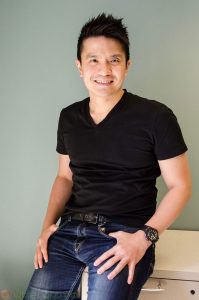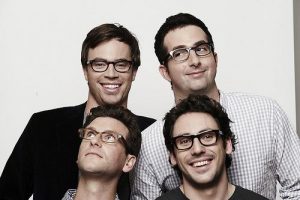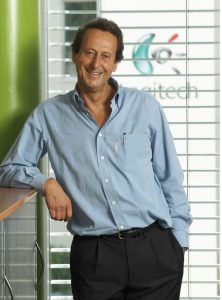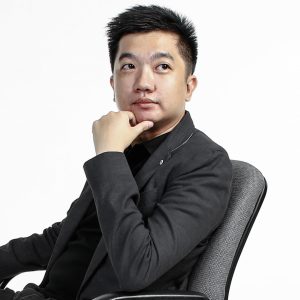Min-Liang Tan : The Lawyer, Turned Billionaire Gaming Tycoon
Having your name ranked with leaders like Elon Musk and Jack Ma, in the Top 10 Most Influential Leaders in Tech, is a real achievement, and when you are a non-tech person, then it is huge. It’s the Singaporean entrepreneur, Min-Liang Tan, who got his name ranked ahead of these two tech savvies. Tan studied law and eventually, ended up starting up a tech company, i.e. Razer and became one of the most influential people in the Tech world. This billionaire from Singapore is in love with video games and shares an inspirational story with the world.
Early Life
Tan was born on 5 November 1977, in Singapore. His father, Tan Kim Lee, worked as a real estate consultant and his mother, Low Ken Yin, is a homemaker. He has three siblings, one of whom is the famous clinician-scientist Min-Han Tan. One of the other two is also a doctor, and one is a renowned lawyer.
He completed his primary education from Raffles Institution, and then, attended the Hwa Chong Junior College, to pursue high school education. Later, he went to join National University of Singapore Faculty of Law and received a bachelor’s and master’s degree in Law. He got ranked 20 in his master’s degree.
Early Career & Founding Razer
As soon as he completed his education, Tan started working as an advocate and solicitor for the Supreme Court of Singapore. But the future had held some other plans for him.
Tan, since his childhood, loved playing video games, as he was not much into outdoor games. His father had brought an Apple II computer, for him and his brother, upon which he played lots of games.

The idea of starting a video gaming peripheral manufacturing company came up to Tan, when he met the future co-founder of Razer, Robert Krakoff, through a social media website, in 1999. The two coincided on their interest for video games and started working together to design the world’s first gaming mouse – the “Razer Boomslang,” when Tan was still in college. Even, after graduating in 2002, along with his job as an advocate, he devoted most of the time on working for Razer.
Finally, in 2005, the two acquired the rights to the Razer brand and Founded the company Razer. The two headquarters of Razer are located at San Francisco and Singapore. Tan holds the post of the CEO of the company.
The company produces the peripherals for gamers, and the software for those peripherals, but does not publish games. The motto of the company is “For Gamers. By Gamers”, as both of the co-founders are avid video game lovers.
As one of the first products of Razer, the Razer Boomslang was more responsive, accurate, and faster than what tech companies were producing at that time, it attracted the attention of many venture capitalists. The company started obtaining funding from many investors, and it started manufacturing other gaming hardware, including headsets, a handheld gaming device, the Razer Edge gaming tablet computer and Razer Blade laptops, etc.
In 2015, Razer acquired software division of video-game company Ouya. It also acquired THX in 2016 and Nextbit in 2017.
In 2017, the company went public through an IPO in Hong Kong and was the 2nd most successful IPO of 2017 in Hong Kong stock exchange. In November 2017, the company launched its first Smartphone named Razer Phone.
Personal Life
Tan, currently, lives in Singapore in his family house with his parents. However, he keeps travelling back and forth from Singapore to San Francisco. Tan despite being an owner of a gaming hardware manufacturing company lives a life of a celebrity as many of Singapore people consider him as their idol. People get tattoos of the company logo, and one of them even tattooed Tan’s face on his arm.
In 2015, Tan was listed among the “Top 10 Most Influential Leaders in Tech” by Juniper Research. He was also named in the list of “The 25 Most Creative People in Tech” by Business Insider and was ranked one of the top 40 most powerful people in gaming by Kotaku. TechinAsia ranked him No 1 of the 30 top South East Asia tech founders and was also named the Asian of the Year in 2016 by the Straits Times.
In 2016, he was among the Forbes Singapore Rich List with a net worth of $600 million and was the youngest Singaporean self-made billionaire.
Tan is also in philanthropy and in 2014, he donated a US$10,000 to raise funds for ALS and a £10,000 to fight Motor Neuron Disease, in 2015.

Yashica is a Software Engineer turned Content Writer, who loves to write on social causes and expertise in writing technical stuff. She loves to watch movies and explore new places. She believes that you need to live once before you die. So experimenting with her life and career choices, she is trying to live her life to the fullest.





